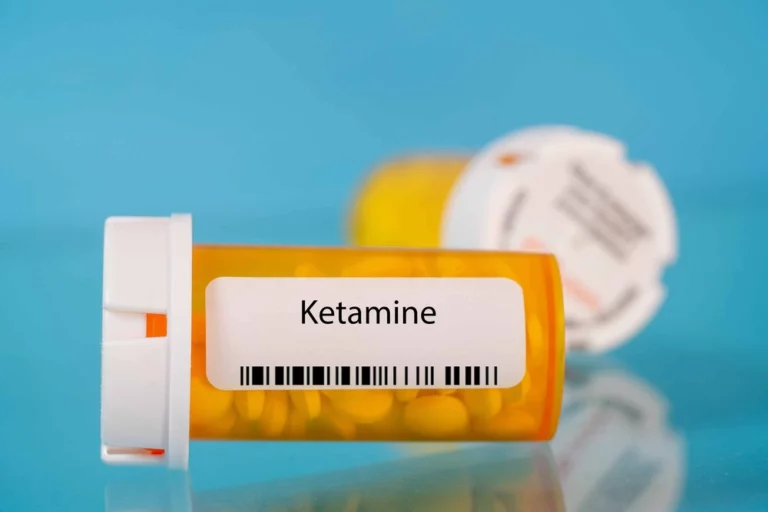In the journey of addiction recovery, the words we use hold significant power. The preferred language within addiction recovery aims to support, empower, and respect individuals facing substance use disorders.
By choosing our words wisely, we can help reduce stigma, promote healing, and create a more inclusive environment for those on the path to recovery. This article delves into the principles and importance of preferred language within addiction recovery and offers guidance on how to integrate these practices effectively.
The Importance of Preferred Language Within Recovery
Using the correct language in addiction recovery is not just about semantics; it profoundly affects how individuals perceive themselves and how society views them. The words we choose carry significant weight, shaping attitudes, influencing behaviors, and either reinforcing or dismantling stigma.
For instance, referring to someone as a “substance abuser” can evoke judgment and blame, implying moral failure and reducing the individual to their struggles. In contrast, using person-first language, such as “a person with a substance use disorder,” emphasizes their humanity and frames addiction as a medical condition rather than a character flaw.
This subtle shift in language can foster empathy, encourage self-compassion, and promote a more supportive environment for recovery.
Moreover, the language used in addiction recovery can influence how individuals internalize their experiences. When people are repeatedly labeled with negative terms, they may begin to see themselves as inherently flawed or beyond help, which can hinder their motivation to seek treatment or sustain recovery.
On the other hand, language that emphasizes hope, resilience, and the possibility of change can empower individuals to take ownership of their recovery journey. For example, phrases like “in recovery” or “working toward wellness” highlight progress and growth, reinforcing the idea that recovery is an ongoing process rather than a fixed state.
The impact of language extends beyond the individual to societal perceptions and policies. Stigmatizing language can perpetuate harmful stereotypes, leading to discrimination in healthcare, employment, and social interactions. This can create barriers to accessing treatment and support, further marginalizing those struggling with addiction.
Conversely, using respectful and accurate language can help shift public attitudes, reduce stigma, and advocate for policies that prioritize compassionate, evidence-based care. By choosing words that reflect dignity and respect, we can contribute to a cultural shift that views addiction as a treatable condition rather than a moral failing.

In professional settings, such as healthcare and counseling, the language used by providers can significantly influence the therapeutic relationship and treatment outcomes.
Clinicians who adopt nonjudgmental, person-centered language can build trust and rapport, creating a safe space for individuals to openly discuss their challenges and goals.
This approach aligns with the principles of trauma-informed care, which recognizes the importance of language in fostering healing and empowerment. Training professionals to use appropriate language is therefore a critical component of effective addiction treatment.
Ultimately, the way we talk about addiction and recovery reflects our values and priorities as a society. By intentionally choosing language that promotes understanding, compassion, and hope, we can support individuals in their recovery journeys and challenge the stigma that often surrounds addiction.
This linguistic shift is not merely a matter of political correctness; it is a powerful tool for creating a more inclusive and supportive environment for all those affected by addiction.
Understanding the Preferred Language Within Addiction Recovery
The preferred language within addiction recovery is a thoughtful approach that prioritizes language which reflects compassion, respect, and support. This involves moving away from labels and terms that can be judgmental or stigmatizing and opting for language that recognizes the person first and the condition second.
Changing Perceptions Through Language
Using the preferred language within addiction recovery plays a vital role in reshaping societal attitudes towards addiction. It encourages understanding and empathy, helping to break down barriers that prevent individuals from seeking help or openly discussing their challenges.
Empowering language also encourages individuals to see themselves as active participants in their recovery rather than passive victims of their circumstances. Terms like “taking steps toward wellness” or “building a life of sobriety” emphasize progress and forward momentum, reinforcing the idea that recovery is achievable and within their control.
This sense of agency is crucial for fostering self-confidence and a proactive mindset, which are essential for long-term success. When people believe in their ability to change, they are more likely to engage in behaviors and seek resources that support their recovery goals.

Key Phrases in the Preferred Language Within Addiction Recovery
Adopting a respectful and considerate lexicon is crucial in supporting individuals through their recovery journey.
The language we use in addiction recovery is a powerful tool for promoting healing and transformation. By choosing words that empower rather than shame, we can help individuals see themselves as capable and deserving of a better future.
This approach not only enhances their self-esteem and motivation but also contributes to a broader cultural shift toward compassion and understanding. In a world where addiction is often misunderstood and stigmatized, empowering language serves as a beacon of hope, reminding individuals that recovery is not only possible but also a testament to their strength and resilience.
What Are Some Phrases That Are Important to the Preferred Language Within Addiction Recovery?
Some key phrases to consider include:
- Use “person with a substance use disorder” instead of “addict” or “junkie.”
- Say “maintaining recovery” rather than “clean” or “sober.”
- Refer to “medication-assisted treatment” rather than “replacement therapy.”
These shifts emphasize viewing individuals as whole people rather than defining them solely by their condition.
Promoting Empowerment and Respect
Language should promote empowerment rather than shame or blame, as it plays a pivotal role in shaping the mindset and emotional well-being of individuals in recovery. The words we use can either uplift and inspire or reinforce feelings of guilt, inadequacy, and hopelessness.
Phrases that acknowledge the courage and effort involved in recovery, such as “actively working towards recovery” or “committed to their healing journey,” help build a supportive atmosphere that fosters resilience and self-efficacy. These expressions recognize the hard work and determination required to overcome addiction, validating the individual’s efforts and reinforcing their sense of agency.
When language focuses on empowerment, it shifts the narrative from one of failure and weakness to one of strength and possibility. For example, instead of saying someone “relapsed,” which can carry connotations of failure, we might say they “experienced a setback” or “are navigating a challenging phase in their recovery.”
This reframing emphasizes that recovery is a non-linear process and that setbacks are a natural part of the journey, not a reason to give up. By using language that normalizes challenges and highlights perseverance, we can help individuals maintain hope and motivation even during difficult times.

Integrating Preferred Language Into Everyday Practice
Understanding preferred language within addiction recovery is the first step; implementing it consistently requires conscious effort and practice.
How Can I Better Adhere to the Preferred Language Within Addiction Recovery?
Start by educating yourself and others about the impact of language and the importance of using person-first terminology. Practice regularly by engaging in discussions, reading about recovery language, and being mindful when communicating with or about those in recovery.
Creating an Inclusive Environment
Organizations and communities can foster inclusivity by training staff to learn the preferred language within addiction recovery and creating materials that reflect these principles. This ensures that supportive and positive messages surround individuals throughout their recovery journey.
Encourage Open Conversations
Open discussions about the significance of the preferred language within addiction recovery can further understanding and acceptance. Encourage individuals in recovery to express how certain terms make them feel and collaborate on alternative language that better supports their experience.
Frequently Asked Questions About Preferred Language Within Addiction Recovery
Here are some common questions to help clarify the concepts and practices surrounding preferred language within addiction recovery.
What Are Some Phrases That Are Important to the Preferred Language Within Addiction Recovery?
Important phrases focus on person-first language, such as “person with a substance use disorder” rather than “addict,” which emphasizes respect and dignity.
How Can I Better Adhere to the Preferred Language Within Addiction Recovery?
Enhancing your language adherence involves education, mindfulness, and practicing person-first terminology. Engage actively with learning resources and discussions regarding recovery language.

Embracing Language for Positive Change
Using the preferred language within addiction recovery is more than a mere linguistic choice; it is about fostering an environment of respect, support, and empowerment.
By understanding and using language that acknowledges the dignity and worth of individuals in recovery, we contribute positively to their journey and challenge the stigmas associated with addiction.
Using the preferred language within addiction recovery is a powerful tool that can promote understanding, empathy, and respect. When we choose words that honor the humanity and resilience of those in recovery, we create an environment where they feel seen, valued, and supported.
This shift in language is not just about being politically correct; it’s about recognizing that every individual deserves to be treated with compassion and respect, regardless of their struggles.
This linguistic shift is not merely a matter of political correctness; it is a powerful tool for creating a more inclusive and supportive environment for all those affected by addiction.
At Asheville Detox Center, we understand the importance of language in fostering dignity and respect, and we are committed to providing a safe and supportive environment where individuals can begin their journey toward wellness.
If you or someone you know is seeking support in recovery, reach out to Asheville Detox Center for compassionate care and guidance on your path to healing.
Our team of experienced professionals is here to offer personalized care and evidence-based treatment, helping you or your loved one take the first steps toward a healthier, more fulfilling life. Recovery is possible, and you don’t have to face it alone—contact us or call today to learn more about how we can support you on your path to healing.







